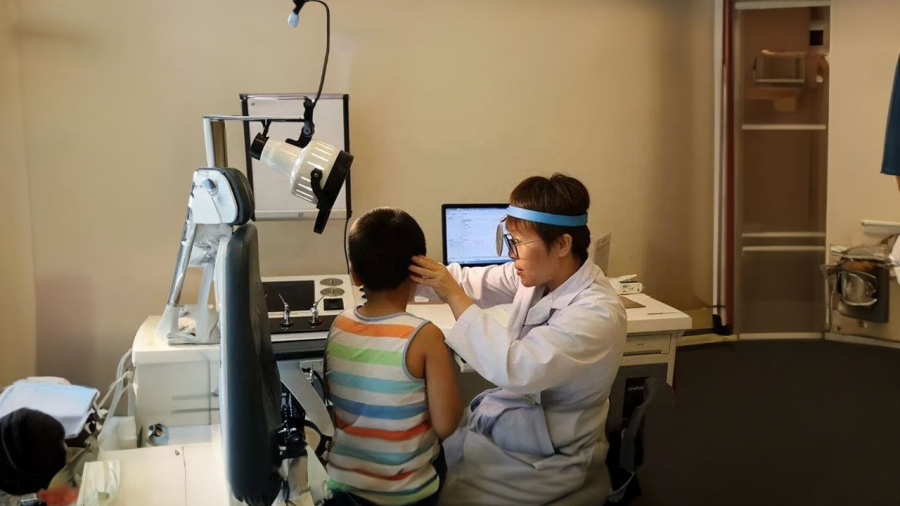Baby Bao Bao was sleeping when a cockroach entered his ear and he cried out. The mother used a flashlight and discovered a cockroach in her baby’s ear. In her fear, she tried to stay calm, quickly turned off the flashlight, and put some cooking oil in the baby’s ear before rushing him to the hospital.
The doctors praised Bao Bao’s mother for handling the situation correctly. If she had continued to shine a light into the ear and tried to remove the foreign object, it could have made the cockroach afraid of the light and burrowed further inside. The risk would have been the cockroach tearing the baby’s eardrum. Applying cooking oil or baby massage oil to the ear canal would suffocate the insect and cause it to float out, thus reducing damage to the ear and preventing the eardrum from tearing.
Insects like cockroaches, ants, flies, etc. entering the ear is a common and frightening situation for both children and adults. Therefore, it is important to remember these skills to ensure the proper care and protection of the child’s ears:

Smart handling when foreign objects fall into the child’s ear:
The first thing parents should do is to stay calm and remember the smart handling steps for their child. If parents panic and worry, the child will become more scared and cooperation will be more difficult.
Parents should not use sharp objects to pick up foreign objects as it may cause more severe injuries. Absolutely do not use cotton swabs, needles, scissors, or other sharp objects as they may push the object deeper or puncture the eardrum.
Do not use your fingers or any strong objects to poke or prod the ear as it may push the foreign object deeper inside.
Keep the child in a sitting or lying position so that the foreign object does not move deeper into the child’s ear.
If the above measures do not solve the problem or the child is experiencing severe pain, parents should take the child to the hospital or seek professional assistance at the nearest healthcare facility. At healthcare facilities, doctors have better tools to remove foreign objects quickly and efficiently.

To minimize the risk of insects entering the child’s ear, parents should:
– Pay attention to hygiene in the living environment to prevent insect development: Parents should keep the house tidy and clean as a first step to prevent insects from flying into the child’s ear. Regularly clean all corners, beds, and windows to check for cracks and signs of insects; prevent insects from entering rooms through gaps, and prevent excessive gathering of insects and other small animals in the house.
– If your area has a high concentration of insects, use insect repellents: Using suitable insect repellents, such as odorless spray or liquid insect repellents, in areas where children live can effectively reduce the number of insects in the house and reduce the risk of insects entering the child’s ear. During the spraying process, keep the child away until the smell of the repellent has dissipated before allowing the child back.
– Pay attention to your child’s activity environment: Advise the child to stay away from densely wooded areas as those places often have a higher risk of insect infestations, which can crawl into the child’s ear.
– Use protective measures: When going outside, the child can wear a headscarf, and when the child is sleeping, use a mosquito net to avoid insects.
In any situation where the problem cannot be resolved, parents should immediately bring their child to the nearest healthcare facility and absolutely avoid attempting to remove insects with cotton swabs or your fingers.































